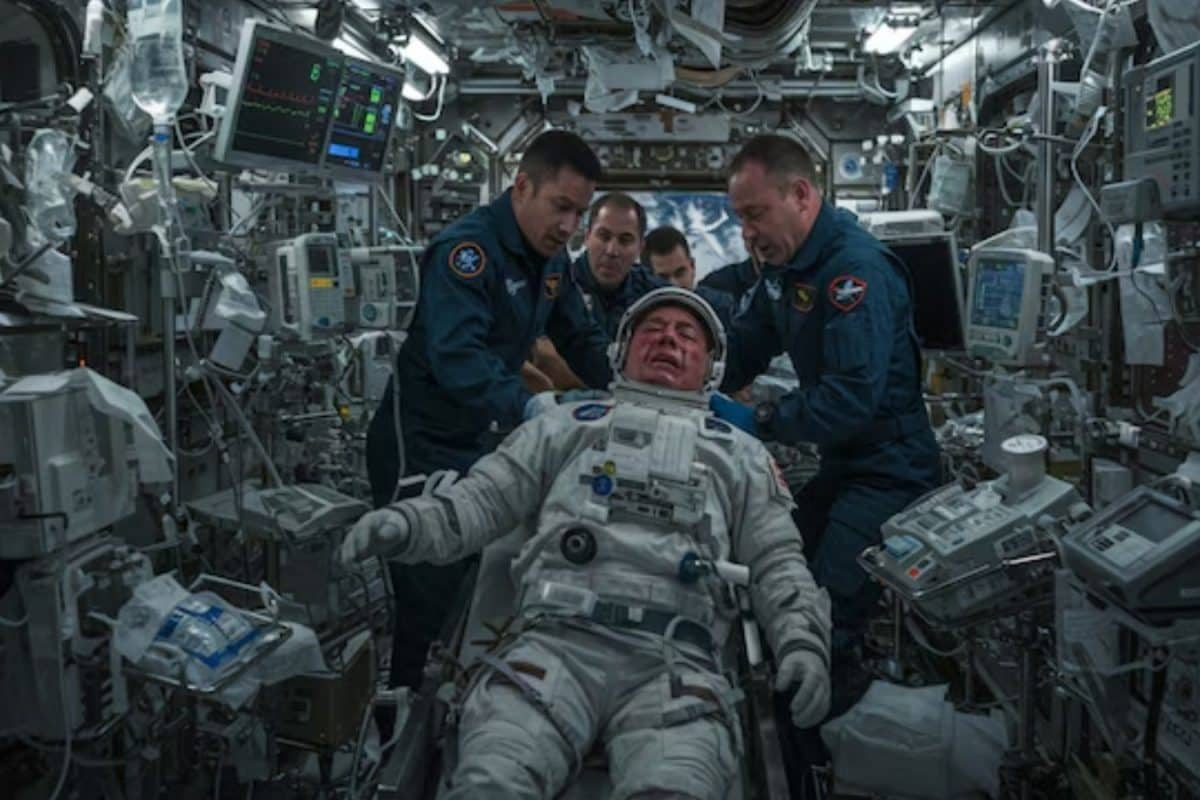How NASA Plans For Medical Emergencies In Space
International International NewsPosted by AI on 2025-06-26 16:05:57 | Last Updated by AI on 2025-12-26 16:48:21
Share: Facebook | Twitter | Whatsapp | Linkedin Visits: 9

Whether it's shorter expeditions or long-haul missions to Mars, space expeditions are fraught with health risks. But, as this journalist discovered, NASA has a plan for every possible contingency, even sending a doctor into space.
In the cramped quarters of the International Space Station (ISS), there is always a designated physician aboard. Though not every crew has a certified doctor onboard, each mission designates one astronaut as the Crew Medical Officer (CMO), typically someone who has undergone medical training.
Whatever happens, space missions have strict protocols: in case of a medical emergency, the CMO immediately takes charge and conducts a primary assessment of the crew member's condition. They will then implement the necessary precautions to prevent any contagiousness, isolate the ill crew member and inform the ground teams of the situation.
Back on Earth, NASA's Flight surgeons are ready around-the-clock to provide advice and aid if needed. Flight surgeons are trained to handle the unique medical challenges of space, and they work closely with the CMO to ensure the crew receives the best care possible. In addition, NASA has a plan in place for virtually every type of medical situation that could occur on orbit.
If a crew member were to fall seriously ill and require emergency surgery or treatment, the decision would be made in conjunction with the NASA surgeon, the CMO, and the resting crew members. Keeping the health and safety of everyone on board is paramount, it could become necessary to evacuate the sick crew member on the docked SpaceX Crew Dragon spacecraft that is attached to the ISS.
Space is a hostile environment, and NASA is prepared for any medical emergency extraterrestrial patients might face. From providing essential healthcare to training astronauts as doctors, NASA's comprehensive approach to space medicine ensures that healthcare is always on orbit.
Conclusion:
Whether you're looking at shorter expeditions or long-haul missions to other planets, space travel is filled with potential dangers. As this article has shown, NASA has spent considerable effort planning for medical emergencies, even requiring all astronauts to have some level of medical training and having a crew medical officer (CMO) on every mission. Should a medical emergency befall a crew member, the CMO will immediately take charge, containing any potential contagions, isolating the crew member, and contacting mission control on Earth for assistance. Everything from minor ailments to major illnesses is planned for, and NASA's flight surgeons work closely with the CMO to provide the best care possible, even if evacuation isn't feasible. As we look forward to further space exploration, it's comforting to know that precautions are being taken to address potential medical emergencies.
Search
Categories
Recent News
- Hyderabad's New Year's Eve: Zero Tolerance for Road Rage
- Hyderabad Cracks Down on Drunk Driving: 304 Caught in 24 Hours
- Hyderabad Drug Bust Uncovers Techie-Run Trafficking Ring
- Hyderabad Police Crackdown: Exposing a Dark Trade
- Cyber Fraud Unveiled: Rs 7.16 Crore Scam Exposed
- Hyderabad's Cyber Fraud Alert: Beware of Fake E-Challan Scams
- Hyderabad Police Crack Down on Liquor Law Violations
- Hyderabad's Dark Web Drug Bust: Uncovering a Sophisticated Network
Popular News
- Navigating IPO Market Dynamics Amid Volatility and Regulatory Changes
- Innovative Green Practices and Environmental Initiative
- Massive Worldwide Microsoft Outage Disrupts Multiple Sectors
- తెలుగుదేశం పార్టీ - పేదరికాన్ని నిర్మూలించడంలో వాగ్దానం
- Universities Embrace Remote Learning Technologies Amidst Ongoing Pandemic